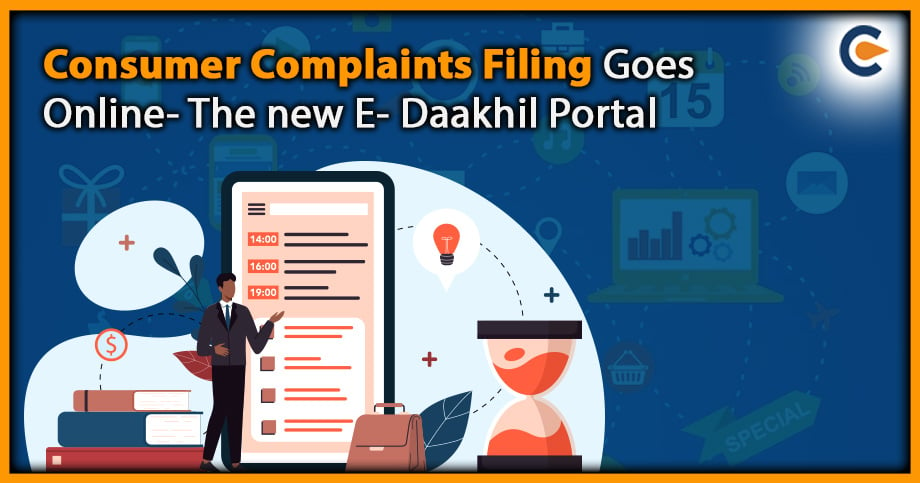Although complaints from customers may seem to reflect poorly on the brand, they are really loaded with beneficial information that can be used to the company’s advantage whenever customers make negative comments about your goods or services. As soon as you can, use your knowledge to address specific customer problems. It would be beneficial to deliver top-notch customer service while also upholding a strong brand reputation in the sector. On the other side, when handled properly, negative comments can occasionally be helpful. Consider that by forgoing the expense of conducting a customer satisfaction[1] survey on your end, your business is obtaining free customer insights and priceless information.
What Do Customers Actually Complain About?
The difference between what customers receives and the products and services that companies offer is what are referred to as the “customer complaint” difference. The offerings made by a brand and the interactions customers have with that brand are all in conflict. Customers frequently complain about brands when their expectations are not met by the products or services they receive from them.
A brand can rapidly resolve a complaint and make a beneficial adjustment, depending on the nature of the complaint. As an alternative, a business could change that feature or service for the benefit of its customers.
There Are Numerous Customer Complaint Categories That Are Based On:
- Poor Service Quality
- Ineffective Brand Communication
- Promises Breached By the Company
Customer Complaint Types
Following are some examples of frequent customer complaints:
1. Product Criticisms
Product complaints occur when customers are dissatisfied with their purchases and seek your assistance in resolving them. Product complaints might take several forms depending on your company strategy, but they almost always involve defects or operational difficulties. If a product is merely defective, your firm should either refund or replace it. If a customer is having difficulty using or understanding your product, answering questions and offering help will typically resolve the problem.
Product troubles are widespread in that any organization may anticipate the occurrence of a breakage or technological difficulty. But persistent product difficulties may indicate that your organization needs to investigate why they are occurring and take corrective action.
2. Complaints about Customer Service
When a customer has an unpleasant or failed encounter with a member of your business, a customer service complaint occurs. While the complaint may be directed at a customer service agent, it might also be directed at a sales representative, administrator, or any other employee that interacts with the general public and customers. Customers who file these complaints typically believe that your firm did not appreciate their business or that your employees did not treat them nicely. If your customers have to wait for assistance, they may complain about the pace of your customer care. You might find it useful to keep track of these complaints. The greatest solution might be found by noting the employee or other source of your customer service problems. In certain situations, you could decide to reassess how you deliver customer support, meet with the team member who is the target of the complaint, or both.
3. Value Issues
Customers complain about value when they believe your product’s pricing is excessive. These complaints reflect the majority of cases in which a customer begins their complaint by referencing the money or effort they put into your services and ends by stressing their dissatisfaction with the outcomes. For example, students who take courses with an online education firm may claim that the curriculum is too narrow for the price, or they may say that the curriculum was long and difficult but did not improve their professional life.
Value complaints must be thoroughly considered so that your organisation can determine whether it has to change its product or better manage customers’ expectations.
4. Complaints from New Customers
When someone buys your product for the first time and is dissatisfied, they may have a new customer complaint that they would like to share with you. These criticisms are frequently comparison-based. The new customers are contrasting their experience with either what you promoted or with what they get when they shop at your rivals. Some new customers could actually dislike your particular item, or perhaps they had a bad experience with it when they first encountered it. For instance, a brand-new guest checking into a small hotel may not genuinely like the design, or they may have come while the lobby was undergoing renovations.
5. Customers’ Repeated Complaints
Recurring customer complaints are those that you hear from your frequent customers. These complaints are especially important since their causes are frequently easy to detect. Your company understands that repeat customers typically like and value your services. As a result, when people complain, you can be certain that something precisely relevant to their experience on this particular occasion went wrong. These customers are uniquely suited to tell you how or why they experienced an issue since they are familiar with your organization.
Repeat customers are critical to the profitability and long-term success of many firms. When they share a complaint, you can usually be certain that the customer plans to return, which is why it’s critical to resolve any issues that emerged during the transaction.
6. Complaints That Continue
Customers who constantly exchange critiques generate chronic complaints. Even though they are regular customers, some customers believe it is necessary to continuously mention how your business might improve. If you’ve built a relationship with a customer who often complains, it’s critical that you listen to what they have to say. But you should be aware that these customers are unlikely to change their opinion of your organization. You might possibly debate the issue or wait to see if anyone else raises the same issue before making any radical adjustments.
The Advantages of Customer Complaint for Your Business
Verify what customers think about your products and services by reviewing customer complaints. Instead of doing surveys and market research, classifying client complaints might help you find areas that need improvement. By adopting such innovations, businesses may provide superior customer service while maintaining a significant competitive advantage. You may better understand why customer complaints are vital for any business by reading the following few points:
1. Improved Customer Understanding
Customers often understand the products and services that businesses can be missing. You may better serve your customers by understanding their needs and concerns after reading customer complaints. Resolve any problems as quickly as you can, even if a customer just communicates a little dissatisfaction. Discover the psychology of the customer and how to use it to develop innovative goods and services. In the end, it results in more brand loyalty and favourable customer word-of-mouth.
2. Improving Customer Service
The reasons behind the massive rise in customer complaints about your brand It can be your slow response rate or your general lack of participation in all forms of communication. Companies may learn from customer complaints how to provide better customer service and how crucial it is to their reputation. In order to connect with all customer care touchpoints and deliver outstanding customer service, businesses use multichannel support.
3. Customer Communication Enhancements
A successful business depends heavily on customer communication, and businesses must be able to handle customers’ problems. Customers could think that businesses do not value their consent, so it is up to businesses to create a sense of worth in them. Customers who have issues or complaints should be encouraged to contact brands so that they may be resolved as quickly as possible. Customers must understand that businesses care about solving their problems since doing so will increase customer loyalty and brand reputation.
4. Increased Customer Loyalty
The huge majority of customers who report a problem to a business do so in the hope of getting their concerns resolved quickly or getting compensation. Make sure the customer support representative answers calls quickly and offers appropriate solutions on time. Even if the customer’s problem cannot be resolved, making up for the loss in some other way will improve the reputation of your business. No matter how difficult they are, it will motivate customers to support your business moving forward.
5. Error Recognition
There’s a chance that hundreds of other customers have the same issue as you but haven’t approached you. It is essential to thoroughly examine each customer complaint, particularly if multiple customers have raised it. You can tackle problems that you were previously unaware of by looking into the challenges and concerns that are affecting you. You should work to improve your company’s operations and services and fix any flaws in your products and services if you want it to have a strong brand and be successful.
6. Increased Positive Word-Of-Mouth
For your brand to ensure customer satisfaction, it is important to determine immediate needs and solve any issues with your product offerings. If a company responds quickly to its customers’ problems, customers will recommend it to their friends and relatives. Customers’ impressions of a brand are strongly influenced by the level of customer service provided. References from trustworthy family and friends are valuable and far stronger than any form of advertising. The likelihood that a potential client will become one rises when they hear positive things about a business. This shows how crucial customer complaints are to the success of your brand.
7. Improvement of Goods or Services
When a business receives complaints from customers who are disappointed with a product, service, or necessary component, they should use it as an opportunity to improve their products or services by resolving their complaints. Your business should always seek out innovative solutions to provide better products or services to your customers in order to stay ahead of the competition.
8. A Positive Brand Image
Positivity towards a brand is also demonstrated by offering a suitable platform for customers to express their experiences and thoughts. But you must make sure that you are attending to those problems immediately and that you are paying attention to their feedback. Customers will see your business positively and depend on it, which will boost the reputation of your brand. If you go above and beyond to solve their problems, customers will appreciate your brand more. If your customers are satisfied, they will be more inclined to tell their friends and family how amazing your brands are, which will improve the reputation of your business.
Conclusion
Lastly, a company has to understand that responding to customer issues is a major element of doing business. A business cannot satisfy every customer owing to various commercial and financial constraints. An essential action a business may take is to identify and respond to customer issues. Make the most of it by taking what you’ve learned from it and using it to enhance any facets of the goods or services associated with your brand. Although businesses must find answers to the challenges in order to increase business success, customers’ complaints demand patience and time to address.
Read Our Article: Describe The Main Types Of Customer Complaints And Problems











